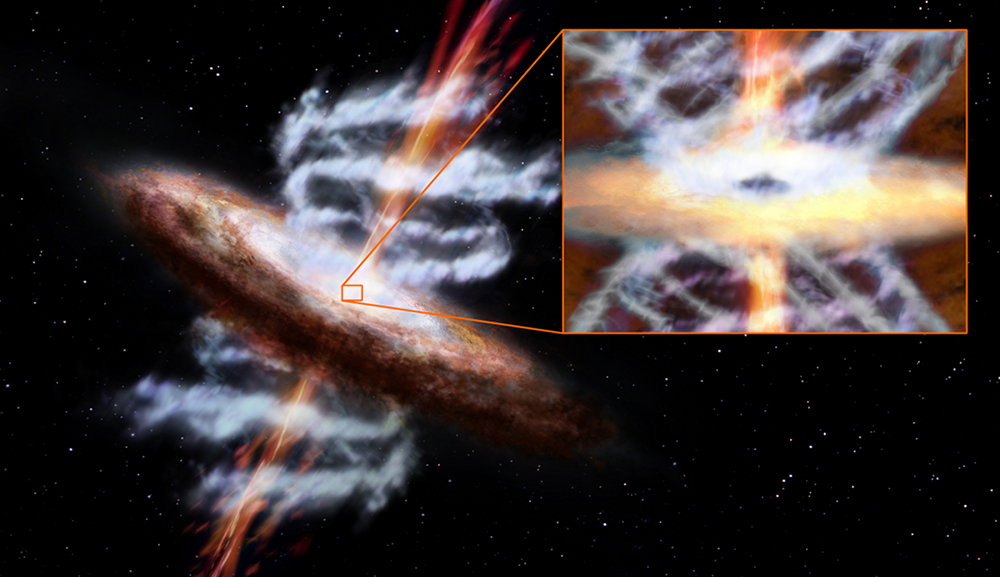
 Credit: ESA/AOES Medialab; Tombesi et al.
Credit: ESA/AOES Medialab; Tombesi et al.
UFOs from AGN
Black holes are tiny things, cosmically speaking. Even the most monstrous supermassive black hole, having a mass of a billion solar masses, would just about fit within the orbit of Uranus, if it were to be (unfortunately for us!) placed at the location of the Sun. But astronomers have noted a peculiar thing: there seems to be a relation between the mass of central, supermassive black holes in galaxies, and properties of regions of the host galaxy which are millions of times larger. How can such a localized thing like a black hole extend its influence over such a huge region? One possible way is via strong radio emitting jets of particles which many central black holes generate. But these jets are very narrow and should deposit most of their energy in the intergalactic medium far outside the galaxy itself. Now astronomers using XMM-Newton and other X-ray observatories have perhaps found a crucial piece of the puzzle. Careful analysis of the X-ray emission from active galactic nuclei often show the presence of high velocity, wide outflows. These outflows, sometimes called Ultra-fast Outflows (or UFOs) seem to represent a fast massive wind flowing from the region of the central black hole at speeds of tens of millions of miles per hour. Unlike the particle jets, these winds seem to be powerful enough, and broad enough, to have a significant impact on large regions of the host galaxy. But exactly how this interaction takes place, and its ultimate impact on the structure of the host galaxy, still remains to be determined.
Published: March 5, 2012
<
HEA Dictionary ● Archive
● Search HEAPOW
● Other Languages
● HEAPOW on Facebook
● Download all Images
● Education ● HEAD
>

Each week the HEASARC
brings you new, exciting and beautiful images from X-ray and Gamma ray
astronomy. Check back each week and be sure to check out the HEAPOW archive!
Page Author: Dr. Michael F. Corcoran
Last modified Monday, 26-Feb-2024 17:11:34 EST


